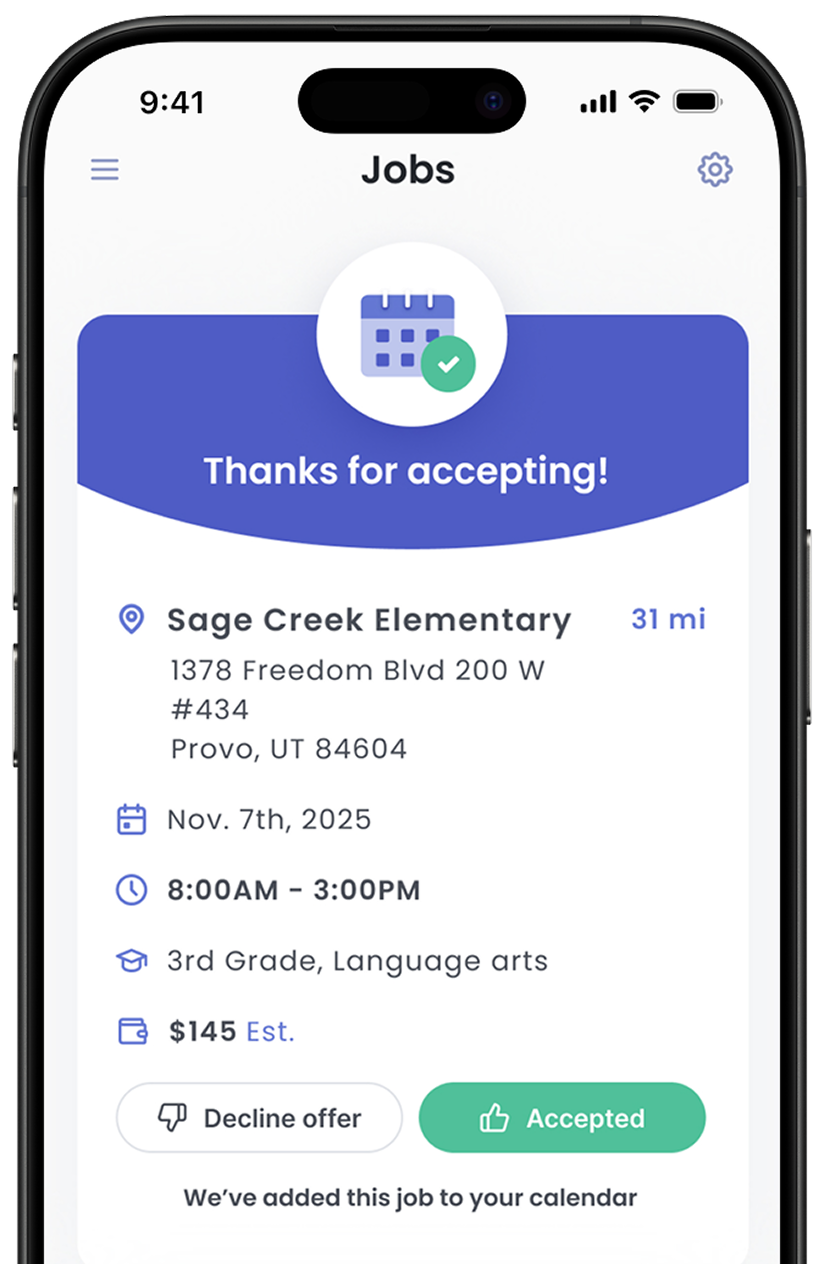What Is PBIS?
Positive Behavioral Interventions and Supports is an umbrella term for the systems that schools have in place to promote positive student behavior. These systems are meant to bring uniformity across the whole school so that students have familiar expectations no matter where they are (classroom, playground, hallway, etc.).
PBIS has general supports that are used for all students, which promote positive behaviors and prevent negative behaviors for a majority of students. There are more targeted supports for the smaller percentage of students who need additional help with behaviors, and there are additional interventions for the last small percent who have the most difficulty with appropriate behavior. This is commonly illustrated with a pyramid:

As a substitute, you will largely be reinforcing expectations for the whole class, using reminders and strategies that work for most students, such as circulating the room, checking in on students' progress, and giving praise to those who are meeting expectations.
Fortunately, many schools have helpful things in place that you can use.
Expectation Posters
Schools may have expectation posters around campus and in the classroom, with a common acronym for students to remember key values such as safety, kindness, or respect.
The acronym is often related to the school mascot, such as the examples below.


Schools may have more specific expectations posted for each area of the school, such as the examples below.


Students will be used to their regular classroom teacher referring to these posters and the expectations. You are encouraged to use the school's language on these posters to remind students what is expected throughout the day.
Reward Systems
It is important to recognize that sometimes teachers do not leave information about the school's or classroom's reward system. If you notice reward items (tickets, trinkets, candy, etc.), do not assume that the teacher is okay with you handing things out to students as a reward, even if students explain how the rewards work or beg you to hand them out.
With that said, when a school or teacher does invite you to use rewards, these can be useful for promoting positive behaviors. Note that in PBIS research, rewards are used to help you (the educator) look for and praise positive behaviors. Rewards are not something to hold over students' heads and threaten to withhold if they are struggling. Consider the difference between these two statements:
"I am going to walk around and hand out tickets for those who get their desk and area cleaned up."
vs.
"If you don't clean up in here, no one is getting any tickets this morning."
Obviously, putting the emphasis on looking for positives will encourage students to act positively. Rewards should feel positive, not threatening.

Student Behavior Plans
You may see a note left by the teacher, or be told by another staff member, about a specific behavior plan for a student. These are typically used for students who are at the top of the behavior pyramid (have regular struggles). Take care to follow the plan as it has been explained to you. Plans often stipulate that the particular student gets additional reminders, warnings, or breaks. Sometimes there are accommodations such as special seating.
You may also need to give more specific reinforcement, such as stickers on a tracking sheet throughout the day. Often there are individual rewards that these students earn for their behavior. Remember that these students have significant struggles and that the plan is designed to encourage positives rather than to hold over a student's head as a threat.

It's Okay to Ask!
If unprompted, schools may not provide you with too much information about behavior systems. You are encouraged to arrive early and ask! They may be able to take a few minutes to give you more details or have you meet staff of the same grade-level to learn more.
Remember that you can always ask for school support if there are extreme or dangerous student behaviors. You are expected to manage regular disruptions and misbehaviors, but do not let yourself or students escalate to a point of losing control.
.png)




